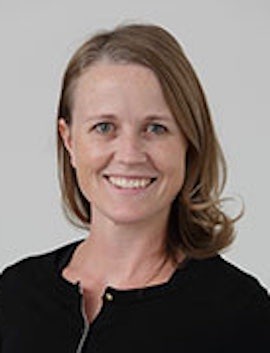2019 Lung Cancer Treatment Focused Research Grant Program

Katharine Rendle, PhD, MSW, MPH
University of Pennsylvania
Research Project:
Implementation strategies for monitoring adherence in real-time (iSMART)
Summary:
(Awarded with Samuel U. Takvorian, MD, MSHP) The objective of this project is to identify effective strategies to help patients with lung cancer manage side effects and achieve optimal adherence to oral targeted therapies. To achieve this goal, we will evaluate the impact of a novel digital intervention (“chatbot”), compared to usual care, on adherence to oral targeted therapies using a two-arm randomized controlled trial, and explore how multilevel factors impact the acceptability and effectiveness of this strategy by collecting qualitative and quantitative data from clinicians and patients. The intervention is a conversational agent or chatbot that engages patients in real time via text messaging and feeds data back into clinical systems, allowing for two-way communication between clinicians and patients, longitudinal symptom monitoring with self-management support, and motivational cues to promote adherence. Guided by established theory of behavior change, we hypothesize the chatbot will improve adherence to oral targeted therapies by improving patient-level symptom management and other determinants of behavior change. Primary outcomes (adherence and persistence) will be measured using electronic pill caps. Secondary outcomes will be assessed using longitudinal surveys and electronic medical record data. Semi-structured interview data will also be collected from a subsample of 60 patients and clinicians following the intervention period. By combining innovations from behavioral economics and machine learning with a highly accessible digital platform, our project has the potential not only to identify scalable, patient-targeted strategies for improving symptom management and increasing adherence to targeted therapies, but also to transform the way cancer care is delivered and implemented.
